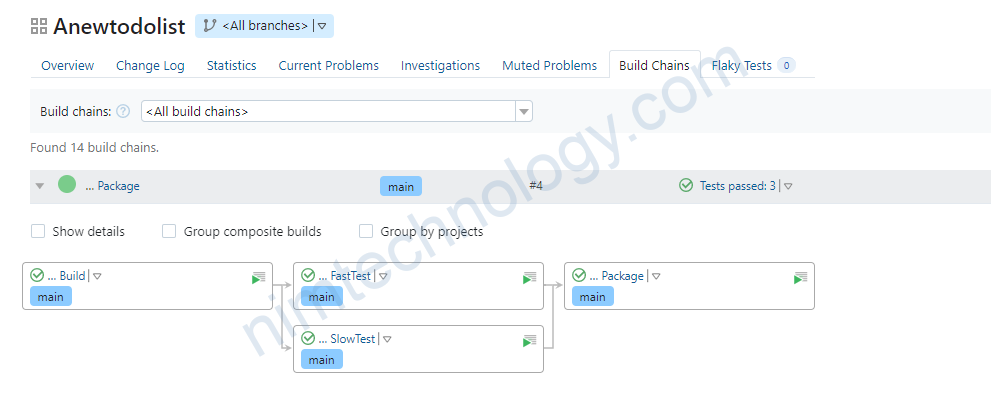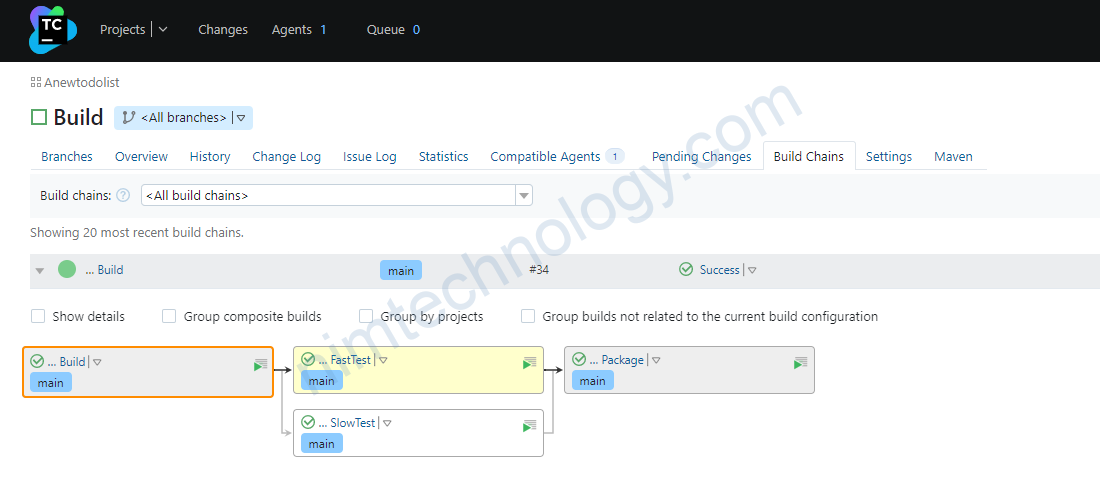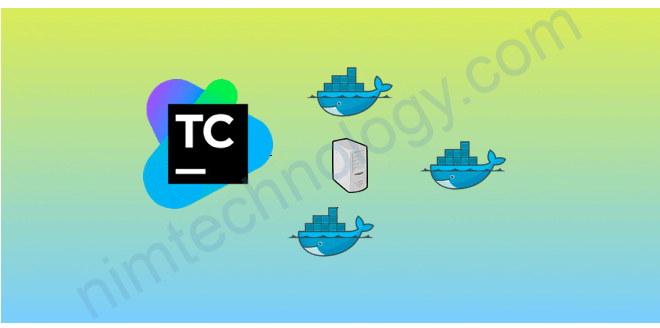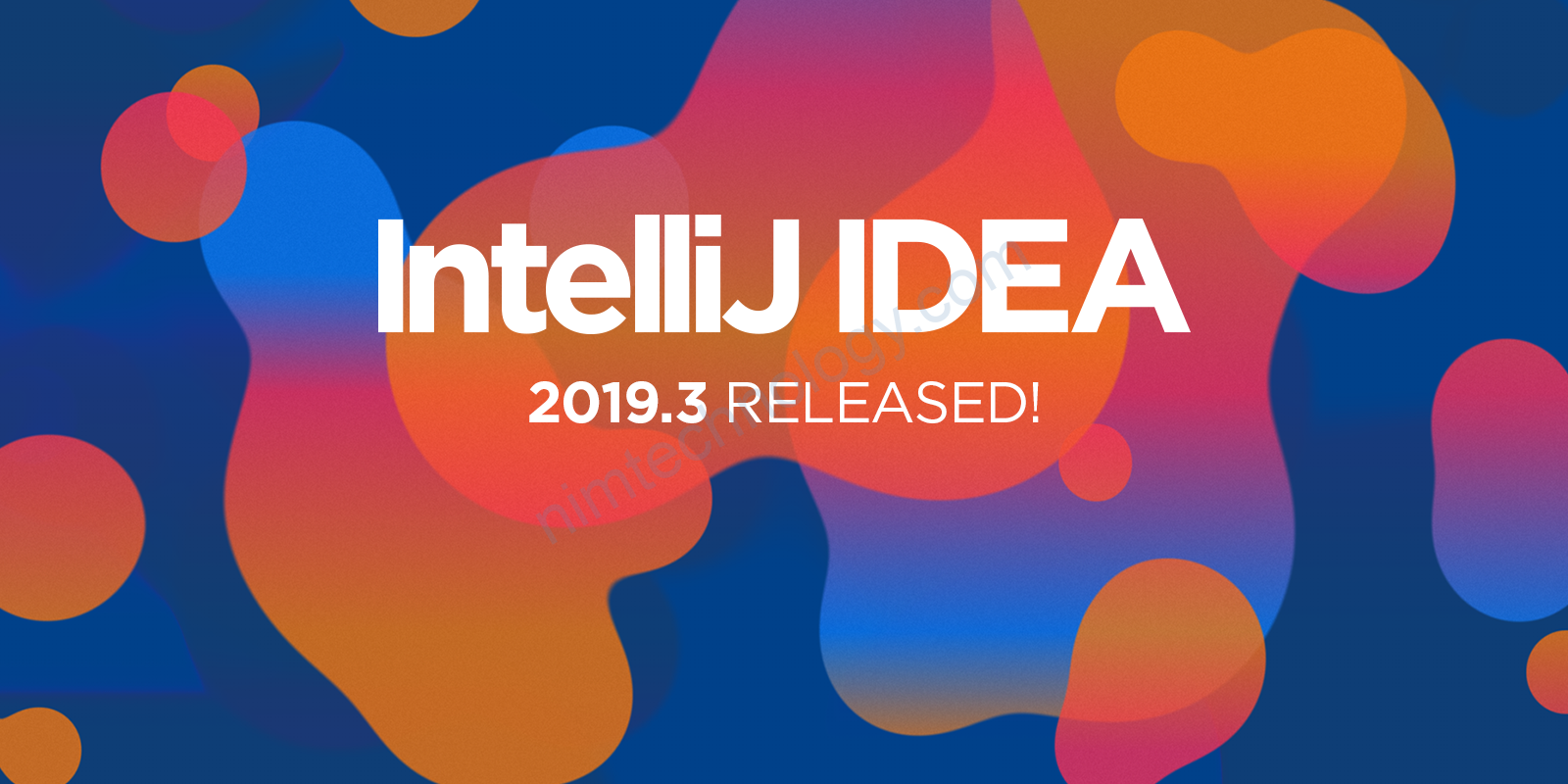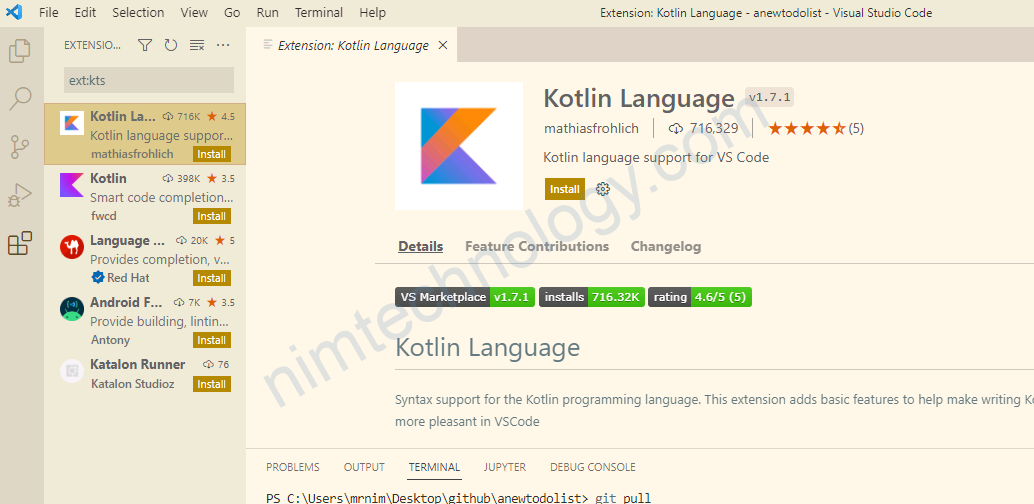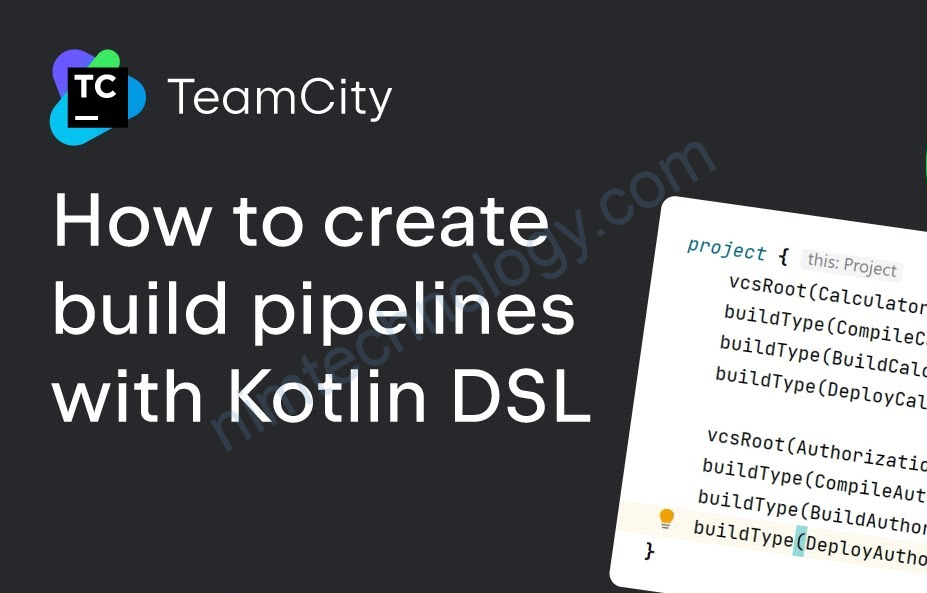Mình có 2 object là:
object Build : BuildType({
name = "Build"
vcs {
root(DslContext.settingsRoot)
}
...
object Package: BuildType({
name = "Package"
vcs {
root(DslContext.settingsRoot)
}
...
Giờ bạn muốn setup Package sẽ run sau Build
Cách 1: bạn set thêm trong object Package dependencies
object Package : BuildType({
name = "Package"
vcs {
root(DslContext.settingsRoot)
}
steps {
maven {
name = "Nim custom step Package"
goals = "clean package"
runnerArgs = "-Dmaven.test.failure.ignore=true"
}
}
##Look at below
dependencies {
snapshot(Build) {}
}
Cách 2 là config trong project
version = "2022.04"
project {
buildType(Build)
buildType(Package)
sequential {
buildType(Build)
buildType(Package)
}
}
sau khi bạn thay đổi thì bạn push lên github đẻ teamcity trigger
import jetbrains.buildServer.configs.kotlin.*
import jetbrains.buildServer.configs.kotlin.buildFeatures.freeDiskSpace
import jetbrains.buildServer.configs.kotlin.buildSteps.maven
import jetbrains.buildServer.configs.kotlin.triggers.vcs
/*
The settings script is an entry point for defining a TeamCity
project hierarchy. The script should contain a single call to the
project() function with a Project instance or an init function as
an argument.
VcsRoots, BuildTypes, Templates, and subprojects can be
registered inside the project using the vcsRoot(), buildType(),
template(), and subProject() methods respectively.
To debug settings scripts in command-line, run the
mvnDebug org.jetbrains.teamcity:teamcity-configs-maven-plugin:generate
command and attach your debugger to the port 8000.
To debug in IntelliJ Idea, open the 'Maven Projects' tool window (View
-> Tool Windows -> Maven Projects), find the generate task node
(Plugins -> teamcity-configs -> teamcity-configs:generate), the
'Debug' option is available in the context menu for the task.
*/
version = "2022.04"
project {
buildType(Build)
buildType(Package)
sequential {
buildType(Build)
buildType(Package)
}
}
object Build : BuildType({
name = "Build"
vcs {
root(DslContext.settingsRoot)
}
steps {
maven {
name = "Nim custom step Build"
goals = "clean compile"
runnerArgs = "-Dmaven.test.failure.ignore=true"
}
}
features {
freeDiskSpace {
requiredSpace = "1gb"
failBuild = true
}
}
triggers {
vcs {
branchFilter = """
+:lesson1
+:lesson2
+:main
""".trimIndent()
}
}
features {
freeDiskSpace {
requiredSpace = "1gb"
failBuild = true
}
}
})
object Package : BuildType({
name = "Package"
vcs {
root(DslContext.settingsRoot)
}
steps {
maven {
name = "Nim custom step Package"
goals = "clean package"
runnerArgs = "-Dmaven.test.failure.ignore=true"
}
}
triggers {
vcs {
}
}
})
và giờ ta khám phá teamcity



Giờ mình sẽ cùng demo parallel build (chạy xong xong builds) trên teamcity
Bạn để config trong join nhé
import jetbrains.buildServer.configs.kotlin.*
import jetbrains.buildServer.configs.kotlin.buildFeatures.freeDiskSpace
import jetbrains.buildServer.configs.kotlin.buildSteps.maven
import jetbrains.buildServer.configs.kotlin.triggers.vcs
/*
The settings script is an entry point for defining a TeamCity
project hierarchy. The script should contain a single call to the
project() function with a Project instance or an init function as
an argument.
VcsRoots, BuildTypes, Templates, and subprojects can be
registered inside the project using the vcsRoot(), buildType(),
template(), and subProject() methods respectively.
To debug settings scripts in command-line, run the
mvnDebug org.jetbrains.teamcity:teamcity-configs-maven-plugin:generate
command and attach your debugger to the port 8000.
To debug in IntelliJ Idea, open the 'Maven Projects' tool window (View
-> Tool Windows -> Maven Projects), find the generate task node
(Plugins -> teamcity-configs -> teamcity-configs:generate), the
'Debug' option is available in the context menu for the task.
*/
version = "2022.04"
project {
buildType(Build)
buildType(FastTest)
buildType(SlowTest)
buildType(Package)
sequential {
buildType(Build)
parallel {
buildType(FastTest)
buildType(SlowTest)
}
buildType(Package)
}
}
object Build : BuildType({
name = "Build"
vcs {
root(DslContext.settingsRoot)
}
steps {
maven {
name = "Nim custom step Build"
goals = "clean compile"
runnerArgs = "-Dmaven.test.failure.ignore=true"
}
}
features {
freeDiskSpace {
requiredSpace = "1gb"
failBuild = true
}
}
triggers {
vcs {
branchFilter = """
+:lesson1
+:lesson2
+:main
""".trimIndent()
}
}
features {
freeDiskSpace {
requiredSpace = "1gb"
failBuild = true
}
}
})
object Package : BuildType({
name = "Package"
vcs {
root(DslContext.settingsRoot)
}
steps {
maven {
name = "Nim custom step Package"
goals = "clean package"
runnerArgs = "-Dmaven.test.failure.ignore=true"
}
}
triggers {
vcs {
}
}
})
object FastTest : BuildType({
name = "FastTest"
vcs {
root(DslContext.settingsRoot)
}
steps {
maven {
name = "Nim custom step FastTest"
goals = "clean test"
runnerArgs = "-Dmaven.test.failure.ignore=true -Dtest=*.unit.*Test"
}
}
triggers {
vcs {
}
}
})
object SlowTest : BuildType({
name = "SlowTest"
vcs {
root(DslContext.settingsRoot)
}
steps {
maven {
name = "Nim custom step SlowTest"
goals = "clean test"
runnerArgs = "-Dmaven.test.failure.ignore=true -Dtest=*.integration.*Test"
}
}
triggers {
vcs {
}
}
})

